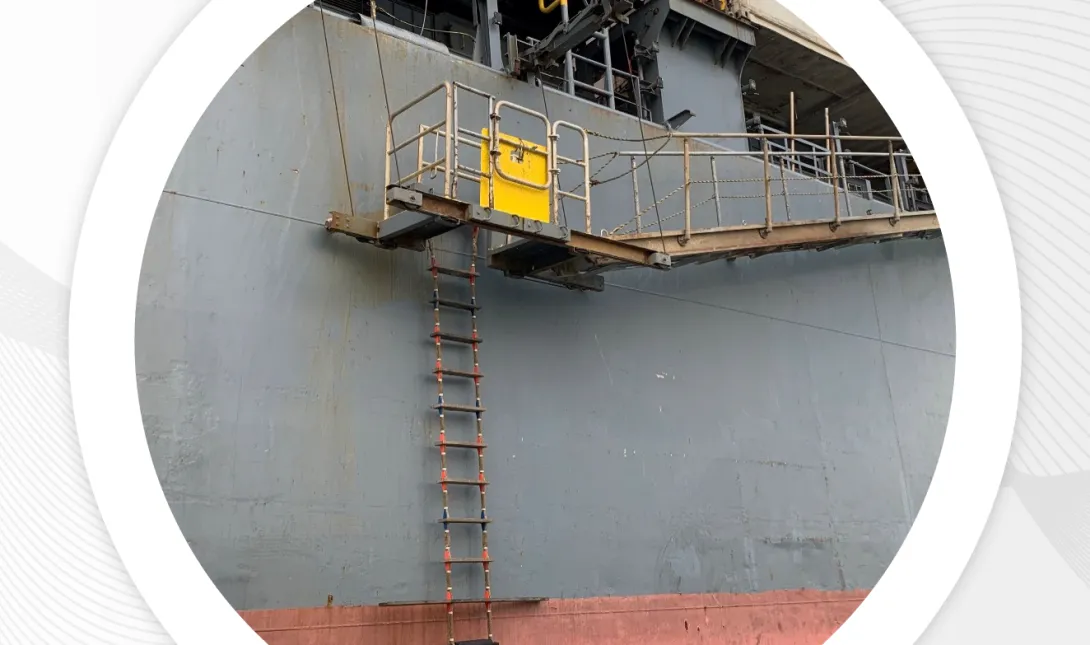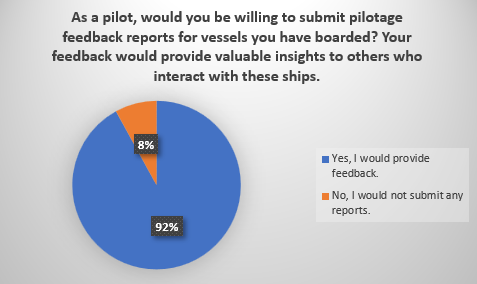On September 18th, RightShip held a webinar on pilot ladder arrangements, focusing on the issue from the perspective of the pilot. This was the second in a two-part series addressing a concerning increase in the rate of pilot ladder non-conformities and deficiencies. The first had over 1,000 participants and sparked conversations across the maritime community that are still ongoing – you can download a copy here.
The second webinar – Pilot Ladder Arrangements: A Pilot's Perspective on Best Practices – was hosted by our own Captain Christine Shank, who was joined by experienced and highly regarded marine pilots Captain Arie Palmers and Captain Adam Roberts. Together, the hosts delved into real-life case studies, shared their valuable experiences, and provided clear guidance on best practices for pilot ladder arrangements.
The webinar attracted a significant audience, with pilots, seafarers, and individuals closely involved in pilot ladder-related matters contributing to a captivating discussion. To better understand how we can address the alarming rise in non-conformities and deficiencies in pilot transfer arrangements, we conducted a survey among the participants, inviting their input on the key topics explored during the webinar.
One of the initial questions posed to participants sought their perspective on whether the incidence of non-compliant pilot transfer arrangements was increasing, decreasing, or remaining constant over time. The responses were diverse: a slight majority, comprising 44%, believed that non-compliance rates were decreasing, whereas 39% held the opposing view. A notable 17% indicated uncertainty.
The first question asked participants for their perspective on whether the incidence of non-compliant pilot transfer arrangements was increasing, decreasing, or remaining constant over time. The responses were mixed: a small majority of 44% believed that non-compliance rates were decreasing, while 39% said the opposite. A notable 17% said they didn’t know.
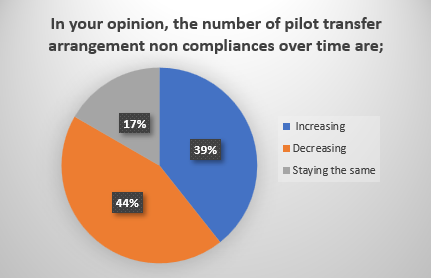
We also asked about the impact of reporting non-compliance to regulatory bodies and sharing non-compliance details among pilot organizations and ports. In both cases, a very large majority (93.33% and 92% respectively) said that reporting non-compliance or sharing details of non-compliance had a positive impact.
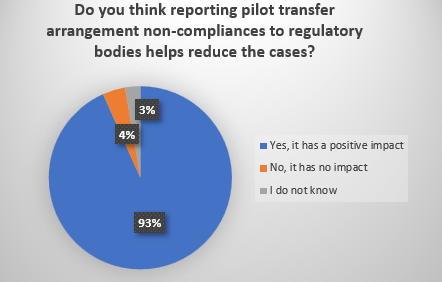
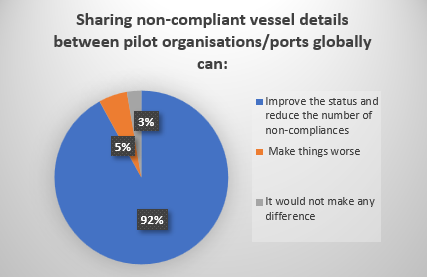
Building on this, we asked participants if they were willing to submit pilotage feedback reports for vessels they had boarded. Virtually all attending pilots said they would do so.
Subsequently, we sought the participants' input on the actions RightShip could take to help eliminate non-compliant pilot transfer arrangements. We presented three options: 1) Placing a greater emphasis on pilot transfer procedures within Safety Management Systems (SMS) during RightShip Inspections and management reviews, 2) Educating ship managers on best practices through the RightShip website, and 3) Establishing a platform for pilots to report and share information regarding non-compliant vessels.
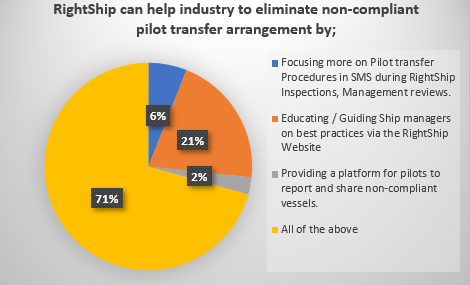
For those interested, you can access the recorded webinar by clicking here.
We then asked for our participants' input on the actions RightShip could take to help eliminate non-compliant pilot transfer arrangements. We presented three options: 1) placing a greater emphasis on pilot transfer procedures within Safety Management Systems (SMS) during RightShip Inspections and management reviews, 2) educating ship managers on best practices through the RightShip website, and 3) establishing a platform for pilots to report and share information regarding non-compliant vessels.
